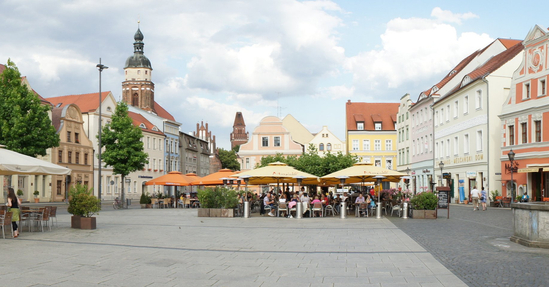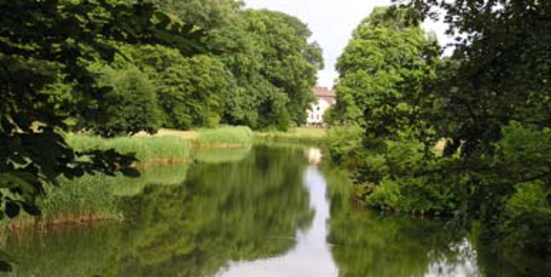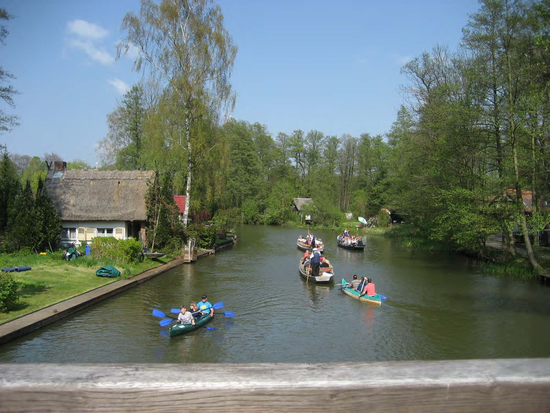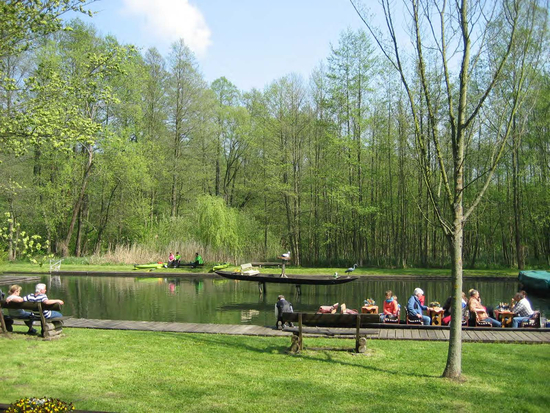Cottbus and Spree Forest
Cottbus is a university city in Brandenburg (Germany) situated around 125 km (78 mi) southeast of Berlin, on the River Spree. The settlement was established in the 10th century, when Sorbs erected a castle on a sandy island in the River Spree. The first recorded mention of the town's name was in 1156. In the 13th century German settlers came to the town and thereafter lived side-by-side with the Sorbs. In medieval times Cottbus was known for wool, and the town's drapery was exported all over the Brandenburg, Bohemia and Saxony. In 1462 Cottbus was acquired by the Margraviate of Brandenburg; in 1701 the city became part of the Kingdom of Prussia. In 1815 the surrounding districts of Upper and Lower Lusatia were ceded by the Kingdom of Saxony to Prussia. During World War II, Cottbus was taken by the Red Army on 22 April 1945. From 1949 until German reunification in 1990, Cottbus was part of the German Democratic Republic (East Germany).
Cottbus is the cultural center of the Lower Sorbian minority. Many signs in the town are bilingual, and there is a Lower Sorbian-medium Gymansium and Sorbian Quarter, but Sorbian is rarely spoken on the streets. Next to Cottbus is the famous Branitz Park, created by Prince Hermann von Pückler-Muskau after 1845. Schloss Branitz (Branitz Castle) was rebuilt by Gottfried Semper in a late Baroque style between 1846 and 1852, and the gardens laid by Prince Hermann feature two pyramids. One of these, the See-pyramid, is in the middle of an artificial lake and serves as his mausoleum.
Cottbus is also home of the Brandenburg University of Technology (BTU) founded in 1991, the only Technical University in Brandenburg. With around 10000 students per year, BTU Cottbus-Senftenberg covers degree programmes in engineering, natural sciences, economics, architecture, healthy and environmental sciences.
30 km far away from Cottbus begins the Spreewald - a forest area, a countryside that is unique in Europe - located 100 kilometres southeast of Berlin. It was created 20,000 years ago after the last ice age, when the river Spree divided into a network of 970 kilometres of rivers. Today this area is developing as an important touristic resort with beautiful touristic towns as Burg, Lübbenau or Lübben. During the ICTW workshop we will have the pleasure to organize a trip in the wonderful universe of water landscape Spree Forest.




